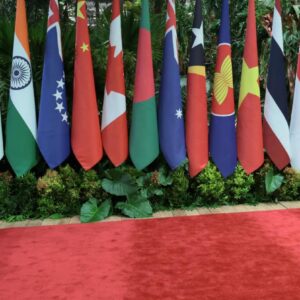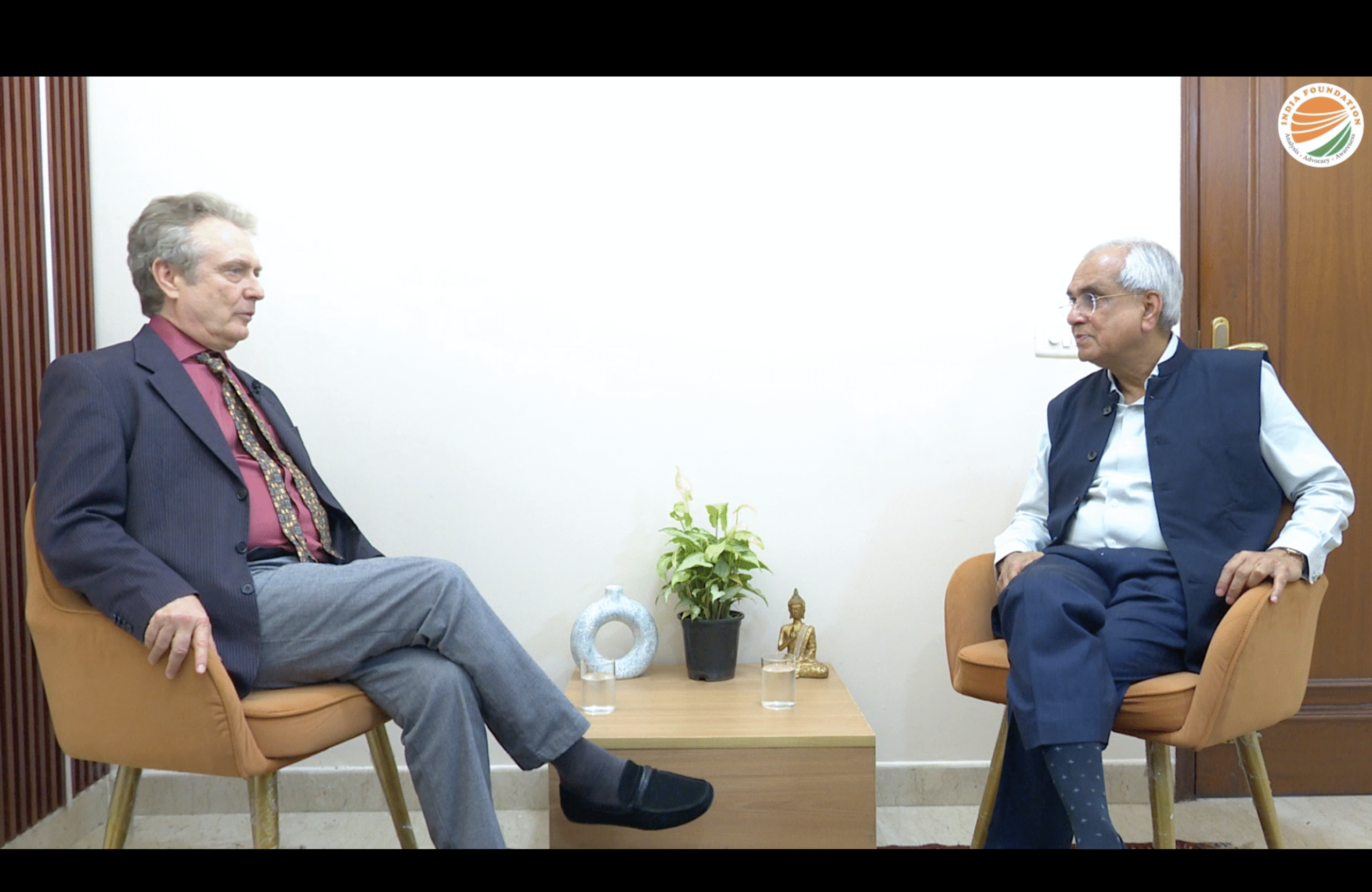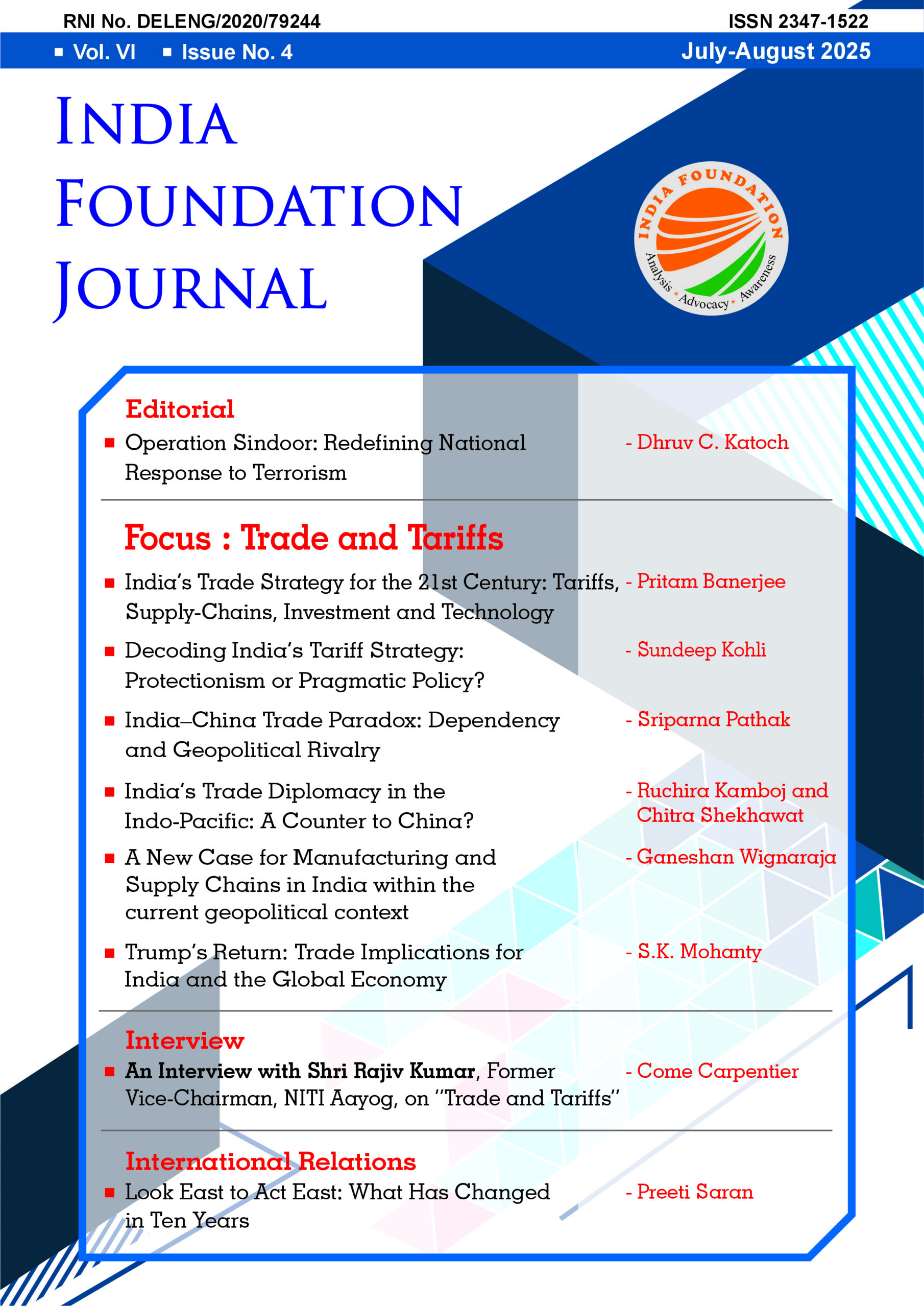The 3rd BIMSTEC Dialogue 2025, held from April 1–3 in Bangkok, Thailand, brought together policymakers, diplomats, academicians, and thought leaders from across the Bay of Bengal region. Organized under the theme “The Imperatives and Impediments of BIMSTEC,” the Dialogue served as a vital platform to deliberate on strengthening regional cooperation and addressing emerging challenges.
Dr. Ram Madhav, President of India Foundation, inaugurated the Dialogue with a strong call for deeper collaboration among BIMSTEC member states, emphasizing the need to strengthen institutional frameworks, enhance economic cooperation, and foster greater connectivity.
Session 1 focused on the imperatives for BIMSTEC. Eminent speakers including Shri M.J. Akbar, Shri G.L. Peiris, Shri R.K. Ranjan Singh, and others stressed the significance of regional integration through better trade facilitation, infrastructure development, and people-to-people ties. Key themes discussed included maritime security, the blue economy, renewable energy, and climate resilience. The speakers called for initiatives such as the swift implementation of the BIMSTEC Transport Master Plan, cross-border energy projects, and expanded education and tourism exchanges.
Participants also reflected on BIMSTEC’s strategic positioning between South and Southeast Asia, noting its critical role in global trade and energy routes. With a combined GDP of over $4 trillion and a population of 1.7 billion, the region’s economic potential was underscored throughout.
Session 2 addressed the impediments to BIMSTEC’s progress. Speakers, including former ministers and ambassadors, pointed to persistent challenges such as political instability, limited financial resources, low intra-regional trade, and the slow implementation of agreements. Ambassadors Rajiv Bhatia and Ruchira Kamboj, among others, emphasized the need for annual leader-level summits, institutional reform, and robust engagement with the private sector and civil society.
Discussions further highlighted the growing need to address non-traditional security threats like cybercrime and illicit economies, particularly in conflict-affected areas. Experts stressed that enhancing digital infrastructure, cybersecurity cooperation, and creating resilient economies are critical for BIMSTEC’s success in the modern era.
The Valedictory Session, chaired by Dr. Ram Madhav, featured addresses by Bhutan’s Foreign Minister D.N. Dhungyel, Nepal’s Foreign Minister Arzu Rana Deuba, and Ambassador Indramani Pandey, Secretary General of BIMSTEC. They collectively emphasized the necessity of translating shared aspirations into tangible outcomes through stronger institutional mechanisms, practical projects, and a renewed political commitment.
The Dialogue concluded with a reaffirmation of regional solidarity, particularly in light of the recent earthquake affecting Myanmar and Thailand. Delegates expressed condolences and emphasized the importance of rapid disaster response and mutual support among BIMSTEC nations.
On the final day, participants visited the historic city of Ayutthaya, a UNESCO World Heritage Site and a symbol of cultural connectivity, reflecting BIMSTEC’s commitment to fostering people-to-people ties alongside economic and political initiatives.
The 3rd BIMSTEC Dialogue 2025 reaffirmed the organization’s importance in promoting stability, prosperity, and integration across the Bay of Bengal region. As global dynamics continue to shift, BIMSTEC’s role as a bridge between South and Southeast Asia remains ever more critical. The Dialogue set a clear roadmap: enhancing connectivity, institutional capacity, and regional solidarity to ensure BIMSTEC emerges as a dynamic and cohesive force for collective growth and resilience.




